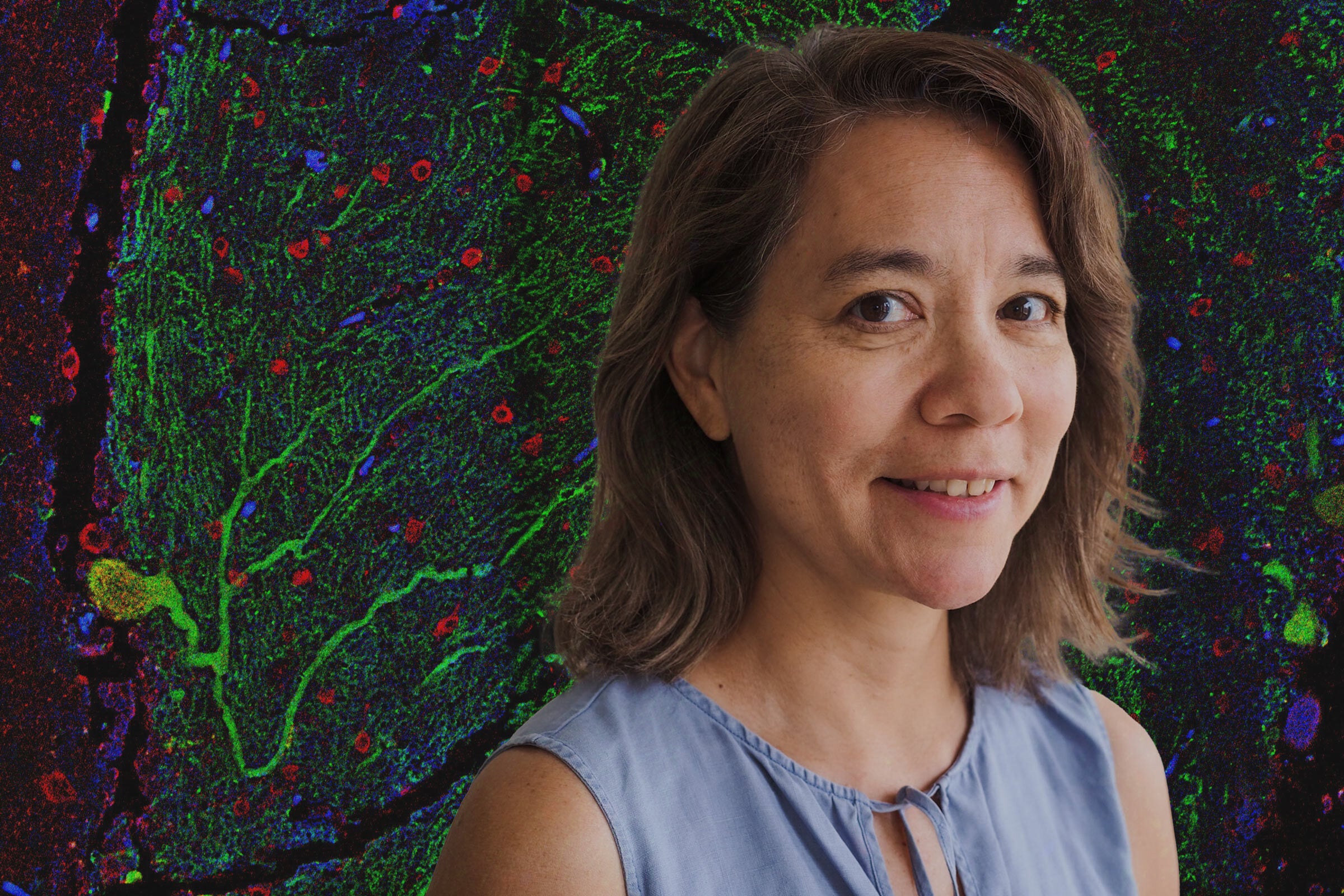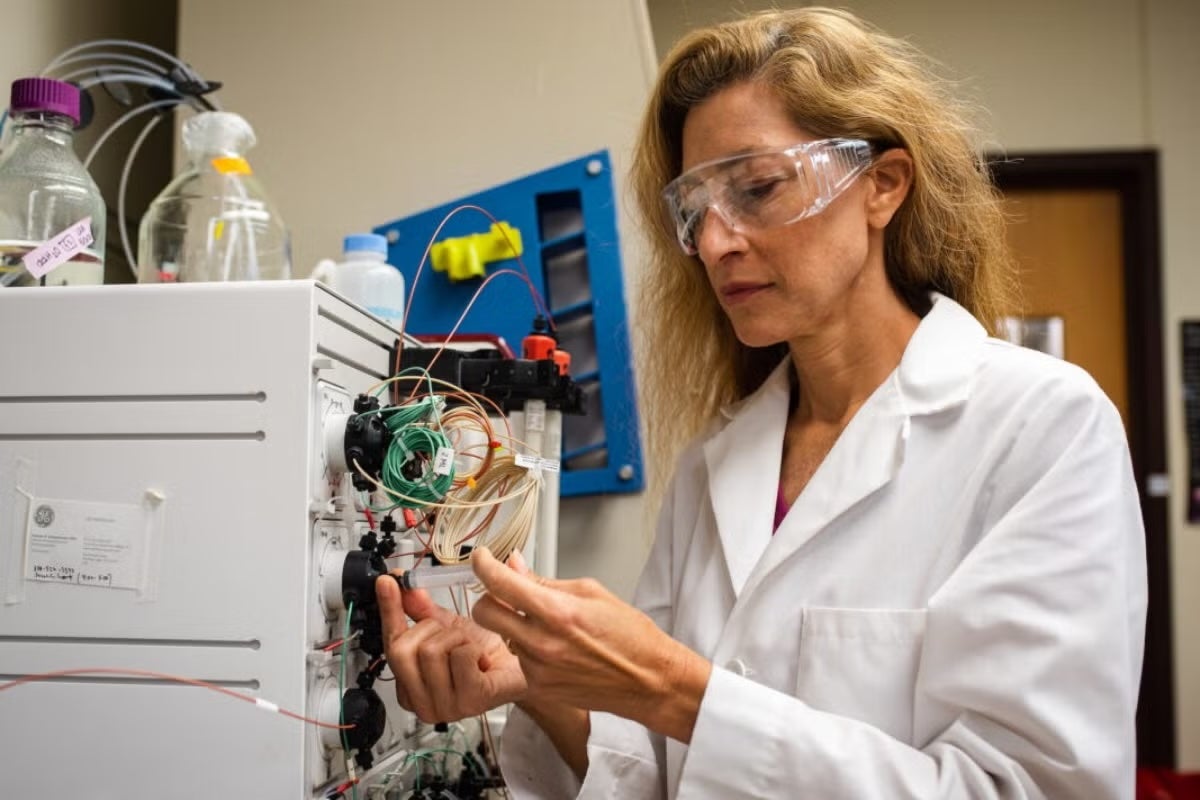UT Vaccine Scientist Will Be Inducted Into National Inventors Hall of Fame
McLellan, who will be inducted in Washington, D.C. on May 8, is among the youngest new inductees in hall of fame history.

Jason McLellan, professor in the Department of Molecular Biosciences and Robert A. Welch Chair in Chemistry at The University of Texas at Austin, has been selected for induction into the National Inventors Hall of Fame for his work on structure-based vaccine design that led to the development of vaccines to fight COVID-19 and respiratory syncytial virus (RSV).
“Jason McLellan’s research and technologies helped save lives around the globe and restore our way of life after the darkest days of the pandemic,” said UT President Jay Hartzell. “Jason embodies the American ingenuity behind our nation’s most notable innovations to improve society and everyday life. He is a worthy addition to the National Inventors Hall of Fame and a testament to our university-wide commitment to having meaningful impact in the world.”
McLellan, 43, will be honored with 16 other inductees — including Barney Graham, with whom he collaborated on both vaccines — at a celebration in Washington, D.C., on May 8. He is among the youngest new inductees in National Inventors Hall of Fame history.
McLellan specializes in understanding the structure and function of viral proteins and applying that information to the rational design of vaccines and other therapies. He and his team collaborated with Graham and other researchers at the National Institute of Allergy and Infectious Diseases’ Vaccine Research Center (VRC) to design a stabilized version of the SARS-CoV-2 spike protein, which biotechnology companies, including Moderna and Pfizer-BioNTech, used as the basis for COVID-19 vaccines that have saved tens of millions of lives worldwide.
Another success came in 2023, when the Food and Drug Administration approved the RSV vaccine Arexvy, which used McLellan and Graham’s research to stabilize the RSV fusion protein and enable the body to develop strong antibodies against it.
“Getting into structure-based vaccine design, you think, ‘If I can help make one vaccine, that would be an incredible career achievement.’ But we've already done it twice, for RSV and coronaviruses, and now we have other things in clinical trials for different viruses,” McLellan said. “There are not a lot of viral vaccines that have been created in the history of man, and so to help contribute to two of them and possibly more — I’m very proud of that.”
Among UT affiliates, McLellan will join other hall of fame inductees: UT Professor Emeritus and Ethernet inventor Robert Metcalfe; the late professor Edith Clarke, who was inducted posthumously for developing the graphical calculator; and UT alumni cancer researcher and Nobel laureate James Allison and National Instruments founders James Truchard and Jeff Kodosky.
McLellan previously has received the National Academy of Sciences Award in Molecular Biology; the Research!America Building the Foundation Award; the International Vaccine Institute’s Bioscience Park MahnHoon Award; the Edith and Peter O’Donnell Award from the Texas Academy of Medicine, Engineering, Science and Technology; the Texas Inventor of the Year Award from the State Bar of Texas; the UT President’s Research Impact Award; and the AAAS Golden Goose Award.
After receiving an undergraduate degree from Wayne State University, he earned a Ph.D. in biophysics in 2009 from the Johns Hopkins University School of Medicine. He carried out postdoctoral research at the VRC in the laboratory of Peter Kwong and in collaboration with Barney Graham. During the fall of 2013, he joined the faculty at the Geisel School of Medicine at Dartmouth College, and in January 2018 he moved his laboratory to UT and joined the faculty in the Department of Molecular Biosciences.
The National Inventors Hall of Fame is a U.S.-based nonprofit organization dedicated to recognizing inventors and invention, promoting creativity and advancing the spirit of innovation and entrepreneurship. It was founded in 1973 in partnership with the U.S. Patent and Trademark Office (USPTO).
Speaking of the 2025 inductees, Derrick Brent, acting director of the USPTO, said, “These amazing visionaries have not only changed the world through their inventions, but they also are paving the way for future generations of STEM innovators.”



